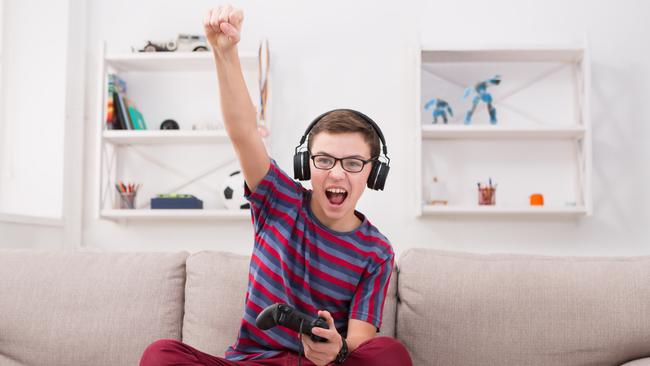Tech giants risk $50m fines under new privacy code for Australian children
The Australian Privacy Commissioner is drawing up an online privacy code for children that could grant them the right to delete data gleaned from gaming or educational apps.

Children could win the right to erase their digital footprints on their 18th birthday, under government proposals for the first child-specific controls over personal data.
A Children’s Online Privacy Code will be set up by the end of next year, with $50m fines for breaches, to operate in lock-step with the legislated social media ban for under-16s.
Australian Privacy Commissioner Carly Kind flagged European-style rights for children to have information deleted upon request.
She said 72 million pieces of data would have been collected about a child by the age of 13 – including data collected by childcare centres, and “sharenting’’ by parents posting photos and information about their kids on Facebook and Instagram.
The Office of the Australian Information Commission, which includes the Privacy Commissioner, is seeking public feedback on measures including whether children should have the legal right to delete data once they turn 18.
“Shouldn’t we give them the ability to have a childhood online, and then to potentially move into adulthood without having that entire data trail following them over 18 years?’’ Ms Kind told The Australian.
“Should you have the ability to delete your data shadow that is cast back through your childhood?
“Sharenting is a challenging issue where parents share a lot of information about their children – how do children reclaim some of that control when they move into adulthood?’’

Ms Kind said “data brokers’’ were collecting information about children through smart watches, online games, video messaging and education apps used in schools.
“Data brokers’ entire business model is dependent on them hoovering up data from different sources, packaging it together and then selling it off to companies – to banks, to home loan companies, to insurance companies – who do use that information to make decisions about whether to give you a financial product, to give you insurance or potentially whether to give you a job,’’ she said. “There are no protections for kids from any of that.’’
Ms Kind said European consumers had the right to reject the collection of data, and to request its deletion. “We don’t have those rights under Australian law at this stage,’’ she said. “This code would be the first child-specific protections under law.’’
She said the children’s privacy code would apply to businesses with a turnover of more than $3m a year – covering just 3 per cent of Australian businesses.
Ms Kind said the $50m fines for breaching the code would apply to multinational tech giants such as TikTok and Meta. “It would absolutely bring in any big tech platform or company that is likely to be accessed by children, provided they are carrying on business here in Australia,’’ she said. “It doesn’t mean they have to be an Australian company.’’

She said consultations with children about the privacy code, carried out by Reset Tech Australia, found strong support for the ability to delete data.
Nearly 90 per cent of children surveyed wanted default privacy settings set to high, and geolocation settings automatically turned off.
Many children were seeking simpler, age-appropriate explanations and privacy policies.
“Kids aren’t going to read 50 pages of terms and conditions when they sign up to an app,’’ Ms Kind said. “How do we give them actual choices, and not just the ability to click ‘I consent’ when they haven’t even read something, and it’s not a genuine form of consent.
“Sometimes kids don’t have any choices because they have to use a particular tool or technology, including to communicate with their friends.’’
Ms Kind said the kids’ privacy code would work in parallel with the impending ban on under-16s using social media. “The ban says children shouldn’t be in certain online spaces, and what the Privacy Code will say is that where they are in online spaces, they should be better protected, and their personal information should be respected,’’ she said.
“The code will have a much broader application – not just on social media but on websites, online services, potentially things like wearables and the education technology and apps that kids use when they’re at school.’’






To join the conversation, please log in. Don't have an account? Register
Join the conversation, you are commenting as Logout